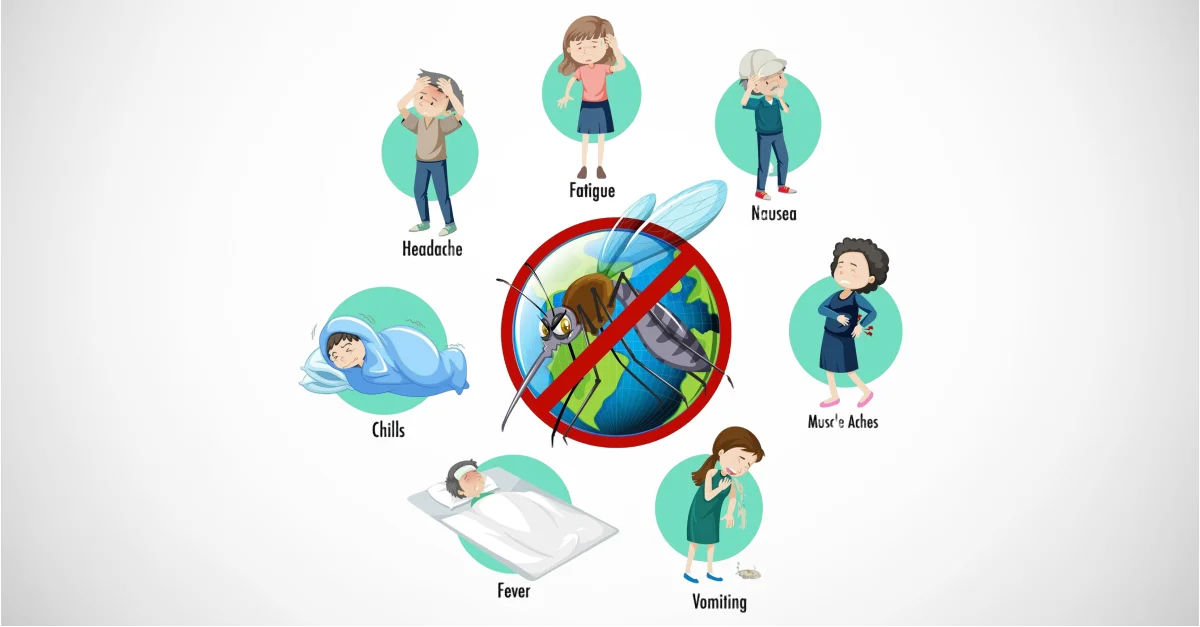Typhoid fever, commonly known as enteric, is a bacterial infection caused by the bacterium Salmonella typhi. This disease is primarily spread through contaminated food or water, making it a significant health concern, particularly in areas with poor sanitation and hygiene practices. Despite advancements in healthcare, enteric fever continues to affect millions of people globally each year, particularly in developing countries.
In this blog, we will discuss the symptoms, causes, prevention methods, and treatment options for enteric fever, as well as share important tips for protecting yourself and your loved ones from this disease.
What is Typhoid Fever?
Typhoid Fever, often referred to as typhoid fever, is an infection caused by the Salmonella typhi bacterium. This infection primarily affects the intestines, causing high fever, weakness, abdominal pain, and gastrointestinal disturbances. The bacteria are typically transmitted through the consumption of contaminated food or water, which makes the disease prevalent in areas with inadequate sanitation.
Typhoid fever can also be caused by Salmonella paratyphi, which is responsible for a less severe form of the disease known as paratyphoid fever. Both types of infections can be life-threatening if left untreated, making prompt diagnosis and treatment essential.
Causes and Risk Factors
Enteric fever is primarily caused by ingesting food or water contaminated with Salmonella bacteria. This contamination occurs when food or water is handled by someone who is infected or by being exposed to water sources contaminated with sewage.
Common risk factors for contracting enteric fever include:
- Poor sanitation and hygiene: In areas where sanitation facilities are inadequate, the likelihood of contamination in food and water increases significantly.
- Consumption of contaminated food or water: Eating or drinking contaminated food and water is the most common mode of transmission for enteric fever.
- Close contact with infected individuals: Handling food prepared by an infected person or being in close contact with an individual who is infected with Salmonella can also increase the risk.
- Travel to high-risk areas: People traveling to regions with poor sanitation infrastructure, especially in parts of Africa, Asia, and South America, are at greater risk of contracting enteric fever.
Symptoms of Enteric Fever
The symptoms of enteric fever typically develop gradually over a period of 1 to 3 weeks after exposure to the bacteria. The most common symptoms include:
- High fever: A sustained fever that often increases in intensity as the infection progresses.
- Abdominal pain and cramping: This may occur in the lower abdomen and can be associated with bloating and discomfort.
- Headache and general malaise: Feeling weak, fatigued, and experiencing a headache is common with typhoid fever.
- Loss of appetite: A reduction in appetite or aversion to food is often noted.
- Diarrhea or constipation: Gastrointestinal symptoms may include diarrhea, constipation, or both. Some patients may develop a rash known as “rose spots,” which are small, rose-colored spots on the abdomen and chest.
- Enlarged spleen or liver: In some cases, the infection may cause enlargement of the spleen or liver, which may be detected during a physical examination.
In severe cases, untreated enteric fever can lead to complications such as gastrointestinal bleeding, perforation of the intestines, septicemia (infection in the bloodstream), and organ failure.
Prevention of Enteric Fever
Preventing enteric fever requires a multi-faceted approach, focusing on improving sanitation, promoting hygiene practices, and ensuring safe food and water consumption. Here are some preventive measures that can significantly reduce the risk of contracting enteric fever:
- Vaccination: There are vaccines available for typhoid fever, including the oral typhoid vaccine (Ty21a) and the injectable vaccine (Vi polysaccharide vaccine). While vaccination provides partial protection, it is still essential to follow other preventive practices, especially when traveling to high-risk areas.
- Improved sanitation and hygiene: The most effective way to prevent the spread of Salmonella bacteria is by ensuring safe drinking water and proper sanitation. It is essential to use clean, treated water for drinking, cooking, and cleaning.
- Proper handwashing: Regularly washing hands with soap and clean water, particularly after using the toilet, handling food, or coming in contact with sick individuals, can significantly reduce the risk of infection.
- Safe food handling: Avoid eating street food or food from unreliable sources. Ensure that food is thoroughly cooked, and avoid consuming raw fruits and vegetables unless they are properly washed and peeled.
- Boiling or treating water: In areas where clean drinking water is not available, it is important to boil water before drinking or use water purification tablets to kill any harmful bacteria.
Treatment of Enteric Fever
Treatment for enteric fever usually involves antibiotics, which are effective in killing the Salmonella bacteria. Early treatment with antibiotics is crucial for a full recovery and to prevent complications. The most commonly prescribed antibiotics for typhoid fever include:
- Ciprofloxacin: A fluoroquinolone antibiotic often used in adults to treat enteric fever.
- Azithromycin: An antibiotic that is effective for treating typhoid fever in patients who cannot tolerate fluoroquinolones.
- Ceftriaxone: A broad-spectrum antibiotic used for severe cases of typhoid fever.
It is important for patients to complete the entire course of antibiotics, even if they start feeling better, to prevent the recurrence of the infection and the development of antibiotic-resistant strains of the bacteria.
In severe cases, where complications such as intestinal perforation or bleeding occur, hospitalization may be required. Intravenous antibiotics, fluids, and monitoring are essential in these situations.
Conclusion
Enteric fever, also known as typhoid fever, is a serious infection that can be life-threatening if left untreated. By understanding the symptoms, causes, and prevention measures, individuals can reduce their risk of contracting this disease, particularly in high-risk areas. Vaccination, proper sanitation, hygiene, and food safety practices are essential components of preventing typhoid fever. Early diagnosis and appropriate antibiotic treatment can ensure a full recovery and prevent complications. If you suspect you have contracted enteric fever, seek medical attention immediately for prompt treatment.






